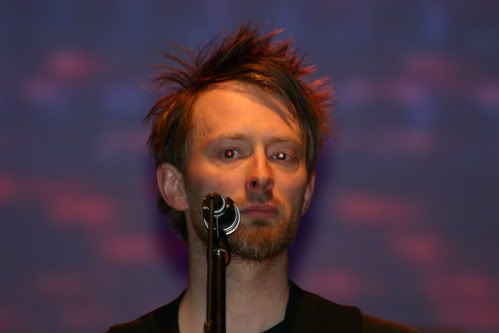This is not a Radiohead quote but it describes very well the way the band work on a song:http://www.blogger.com/img/gl.link.gif
A Radiohead song is usually written in three stages. First, Yorke comes up with a rough sketch; then Jonny, who studied classical composition in school, fleshes out the harmony; finally, the others digest it for a while, working out their parts on their own. It can be months, even years, before a song comes together in a way that satisfies all of them. Take away any one element—Selway's flickering rhythmic grid, for example, fierce in execution and trippy in effect—and Radiohead are a different band. The five together form a single mind, with its own habits and tics—the Radiohead Composer. This personality can be glimpsed in the daily bustle of the group, but you can never meet it face to face, because it lives in the music. A lot of what has been written about Radiohead—there are six books, hundreds of magazine articles, and millions of words on the Internet—circles around an absent center.
Alex Ross: The Rest is NoiseI think this guy actually spoke to the band and they told him how they work, so that is why I'm including it. The article is very well written and I really recommend it.
